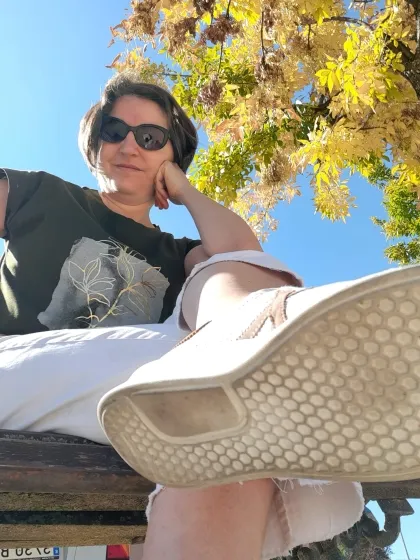"It's a jug of cold water to see how your son cries without stopping saying: 'I don't want to be diabetic ...".Carmen Ana García has recorded a date, on July 20, 2021. His eight -year -old son, Álvaro, debuted in type I diabetes. "After a foot wound had a five -point suture. The next day he begins with symptoms", recalls Carmen Ana.
A few days later, after taking his son to the ambulatory of Dos Hermanas (Seville), and receiving the derivation to the hospital, "they gave us the news that Álvaro has debuted with type I diabetes." The disease forces him to bring an almost military disciplineIn the diet and in his daily life, with habits marked by physical exercise and continuous controls to keep blood sugar at bay.
Diabetes affects all spheres of a child's life, from his own home to school, and to leisure time.This silent disease requires that a child learn to take care of their own health even better than an adult.
"His life turned 180 degrees. Of being able to eat from all at any time when he felt because now he has to remove a series foods that are really insane but that all children eat, such as potatoes, sweets, pastries .... HisMeals since insulin is injected.of insulin, ”explains his mother.
Despite the disease, Álvaro practices football in a federated team and attends normally his training and matches."But he does not understand why he must abandon if the blood glucose is below 90 or above 250. He still has a hard time acquiring that responsibility and we must be far on him, his teachers and coaches are informed of everything related to the disease,"Carmen says.
health education
The role of health specialists is crucial for children and their environment to learn to control the disease.The connection and accessibility between Álvaro's parents and the team of specialists who attend him at the Valme Hospital greatly favors the quality of life of the child and his family."We are very happy with the Valme Hospital team that carry it, both endocrine and educator. Any questions we have we resolve it by email or whatsapp and, for the moment, they give us indications. If we could improve it would be in relation to the attention to the attention to the attentionParents to help our chocolates have the day -to -day life as well as hydrates or how to know how much I have to put in the face of insulin correction. "
Diabetes on the school
The school day is a slope up when a child debuts in diabetes.To school routines are added punctures, food restrictions and a necessarily rapid reaction to a rise or decrease in sugar levels.
Assuming all the discipline imposed by diabetes requires effort and adaptation.Álvaro requires enough time, like any child at his age, although his family tries to normalize care.
"At first it was difficult for his environment to have diabetes, he did not want to puncture, or perform glycemic controls in front of anyone, park, catechesis, football, non -close family ... his friends help him a lot to take him as well as possible, they even avoidEating sweets in front of him..
For children to learn to control a health problem that affects all spheres of lifeIt is very helpful to know the experiences of other children in their same situation."The coexistence we have made have come great, to share experiences, concerns and see that you are the same as many other children is fantastic. Like a lot of population, we will get to have the greatest normality and have control, although sometimesLet's get down, "concludes Carmen Ana.
diabetes: alert signals
Nurse María Luisa Verdugo, a reference for diabetes education at the Valme Hospital, explains what are the signs that alert parents that something is not going well in their child: "Children begin to drink a lot, eat a lot and do to doPipí a lot.
As for the care, from the diagnosis, the hospital team of the Valme Hospital trains children in insulin administration techniques."There are three fundamental pillars: food, insulin and exercise treatment," adds the reference nurse."We emphasize food, in the right intake due to rations in carbohydrates; we teach them insulin administration techniques, in their controls, what is hypoglycemia and hyperglyciemia. We train parents and the child when it is already large enough".
Nurse María Luisa Verdugo and Dr. Juan Diego Carmona, Endocrine Pediatrician, integrate an assistance device within the Pediatrics service at the Valme Hospital.In addition to clinical care, they develop a work of nutritional education and emotional support highly valued by families.The closeness and empathy with families is a sign of identity that provides added value to the care approach.
Spain is the second country with the highest prevalence of diabetes in Europe, according to the latest edition of the Diabetes Atlas of the International Diabetes Federation, where it highlights that, at least, one in seven adults present this disease, and that in twoYears The number of people with diabetes has increased by 42%.





